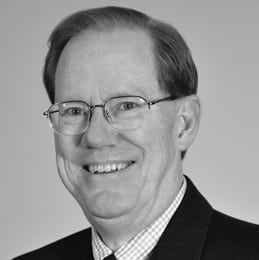The Guilt Pledge
Dear American Billionaire,
Bill Gates and Warren Buffett have asked you to publicly pledge to give away at least half of your wealth to philanthropic causes. So far forty of the wealthiest Americans have signed the Giving Pledge, as it’s known. As people who have an enormous respect for those, like you, who create enormous wealth, we urge you not to join them.
At the beginning of your career, you set out to pursue your passion. Like your peers, you took immense risks, worked grueling hours, tackled complex problems, and experienced your share of bad luck and failure — but you persevered. Maybe you created unrivaled efficiencies that allowed you to charge unbeatable prices, like Richard Schulze of Best Buy . Maybe you found a way to make life and business incredibly more convenient, like FedEx founder Fred Smith. Maybe you helped create a new industry, like Intel’s Gordon Moore. Whatever the details, you became one of the world’s most productive individuals.
But while you may have received financial rewards, satisfaction, and the respect of your peers, the one thing you haven’t gotten for your achievement is moral credit.
The premise underlying the Giving Pledge is that so long as you were pursuing your own goals and well-being, what you were doing wasn’t moral. Only by making the good of others your primary aim and sacrificing your wealth to meet their needs do your actions acquire ethical significance.
Virtually everyone today shares that view — but what if it’s wrong? What if your greatest moral achievement consists, not in giving away your wealth, but in having produced it? What if morality is really about guiding you in making the most of your own life — not commanding you to serve the needs of others? What if the most virtuous thing you can do in life is to pursue your own happiness?
This conception of morality has a long and noble history, stretching back to ancient Greece. Greek philosophers conceived of ethics as a guide to living — to acquiring the virtues necessary to shape your life into the most enjoyable, most successful life it can be. That is also how the Greeks’ modern heir, Ayn Rand, viewed morality. And since creating material wealth is a central requirement of a human life, Rand argued, productive achievement is a profoundly moral activity.
You have produced on a grand scale. Now you have a tremendous amount of wealth at your disposal — more than you could possibly spend on your personal consumption. If the achievement of your own happiness is your goal, then perhaps you will choose to keep your wealth invested in business endeavors. Perhaps you will pass it on to loved ones. Perhaps you will use the money to promote capitalism — the economic system that made your success (and the success of every industrialized nation) possible.
Or perhaps you will donate your money to a charitable cause that matters to you. Like many of the businessmen targeted by the Giving Pledge, you may already fund educational programs in your home town, or medical research to fight an illness you’ve faced. You give to charity out of a benevolent desire to help those worthy of help. That’s perfectly consistent with your pursuit of happiness.
But according to the Giving Pledge, what makes you happy shouldn’t be your primary concern.
It is no accident that the Giving Pledge is not a call for charity but a public pledge to give. As Matthew Bishop and Michael Green observe, “Richesse oblige is part of American culture. The peer pressure to give is great (for donors large and small) . . . The Giving Pledge has upped that peer pressure . . .” The Pledge treats your wealth, not as a justly earned reward, but as a gift from society — one that came with plenty of strings attached. The message is: Fulfill the obligation that came with your riches, give your wealth away — or hide your face in shame.
But your wealth was not an undeserved gift. Every dollar in your bank account came from some individual who voluntarily gave it to you — who gave it to you in exchange for a product he judged to be more valuable than his dollar. You have no moral obligation to “give back,” because you didn’t take anything in the first place.
Your productive achievement and the rewards that go along with it are something you should be proud of, and they are something others should admire. Don’t let anyone treat them as a sin.
Don Watkins
Yaron Brook





